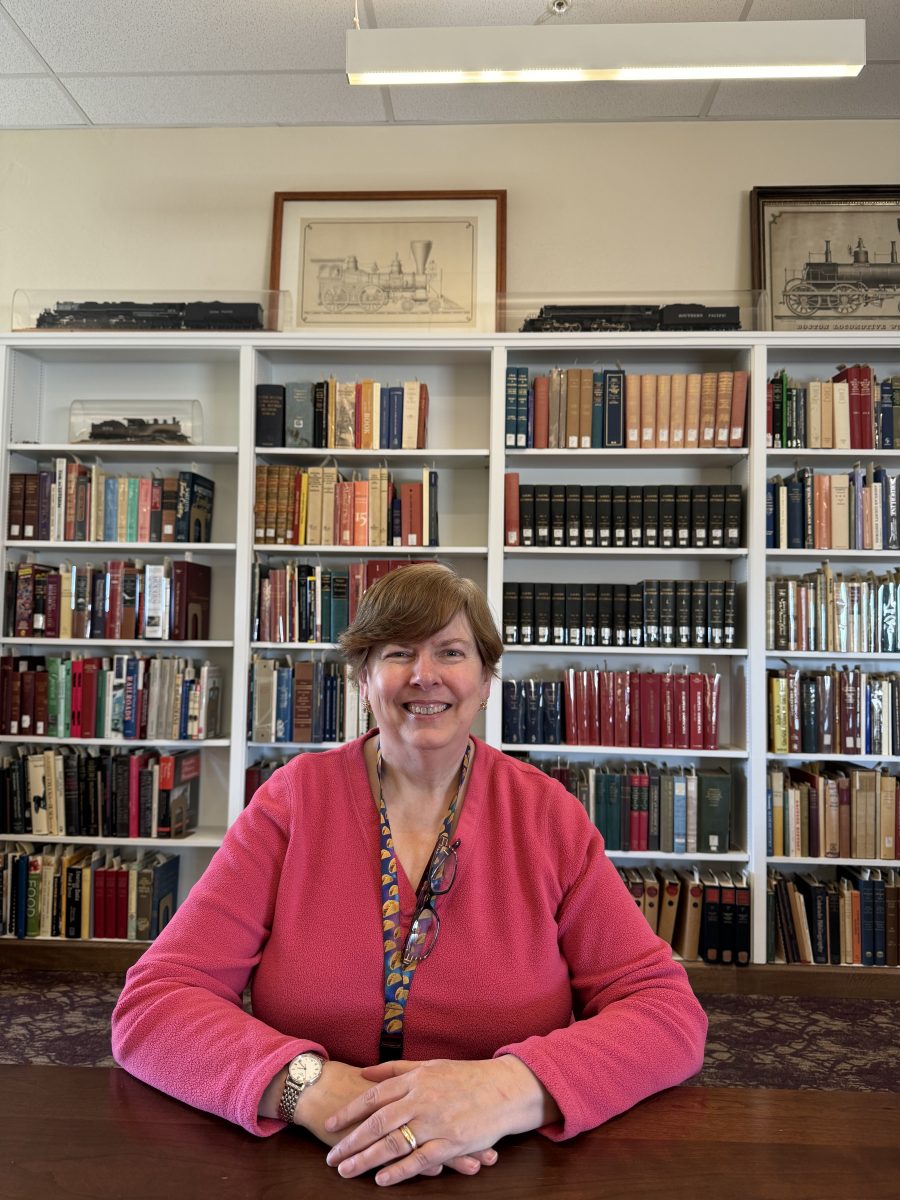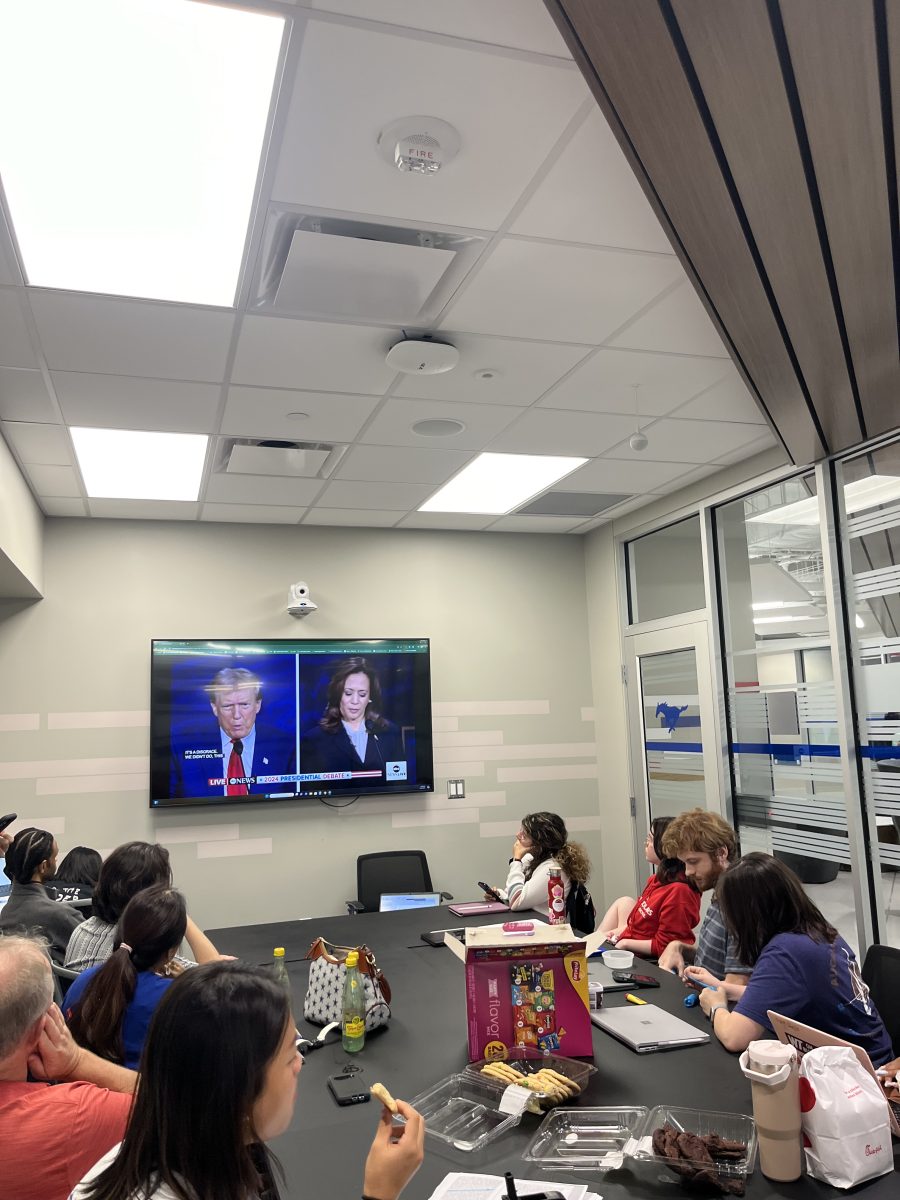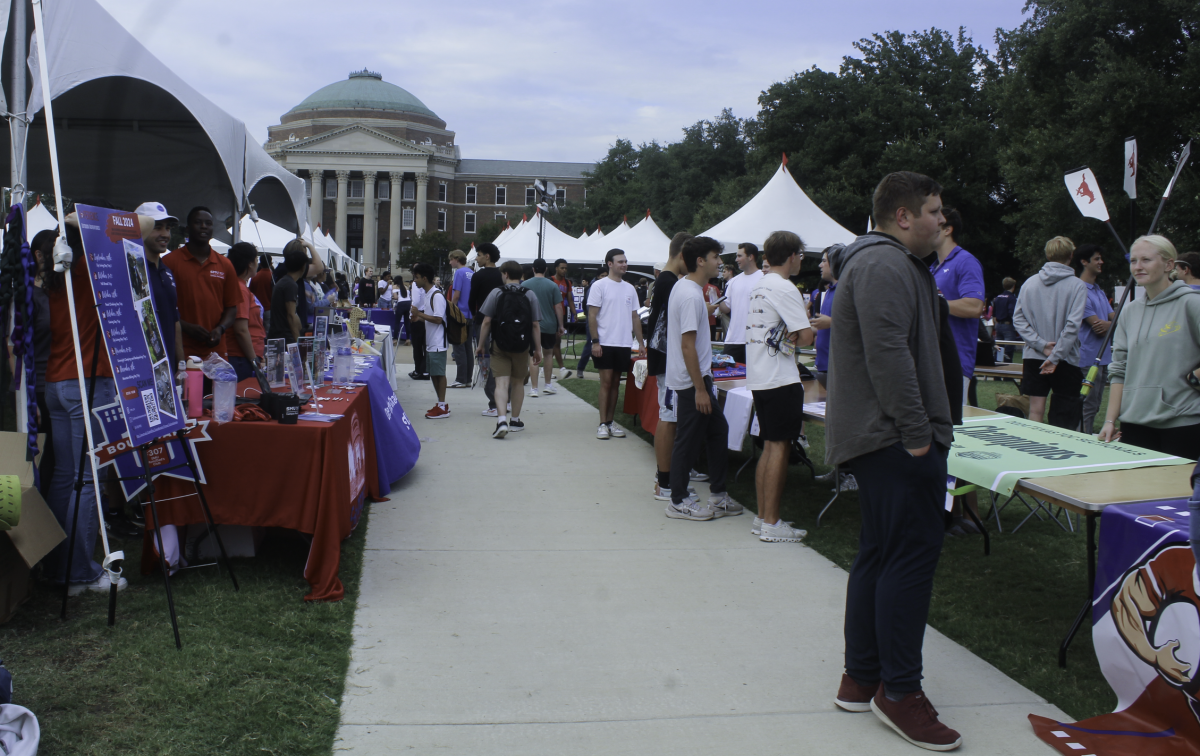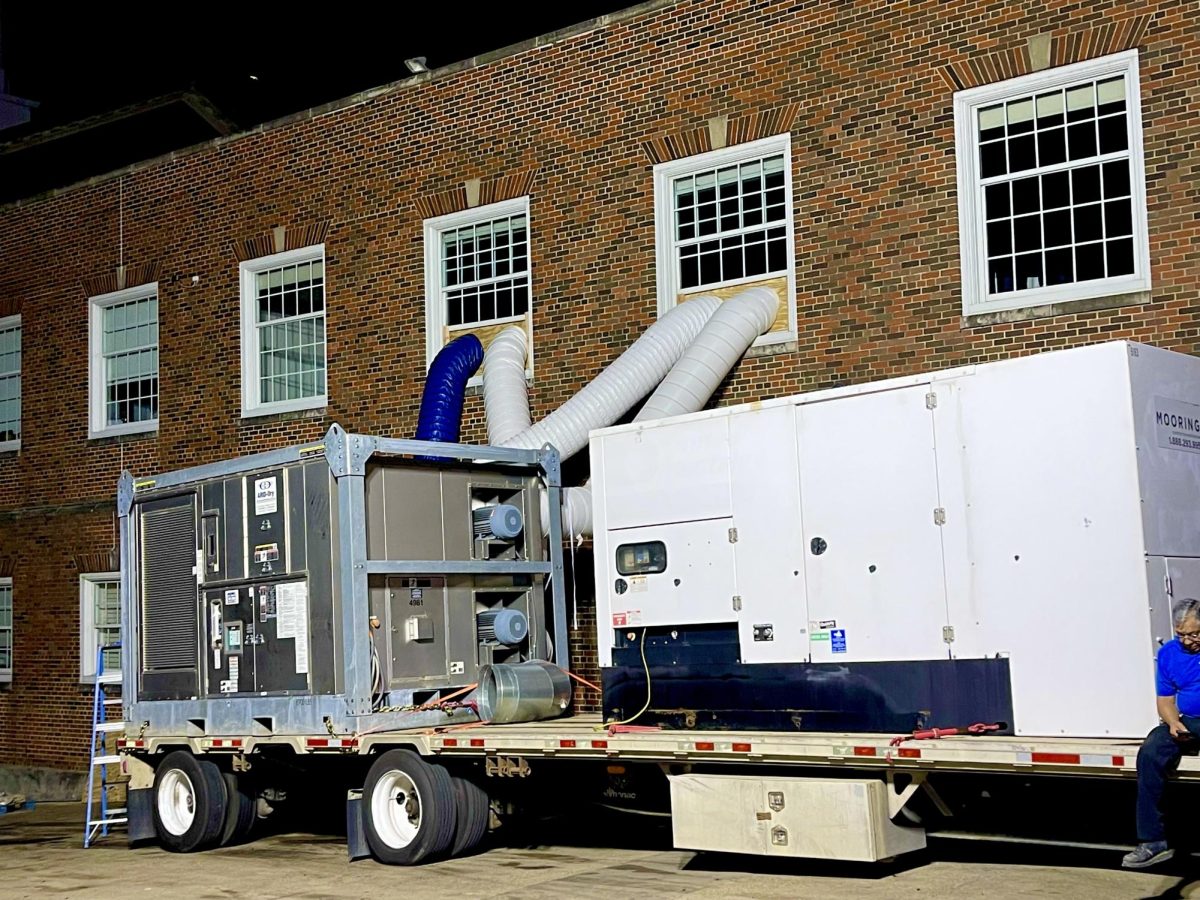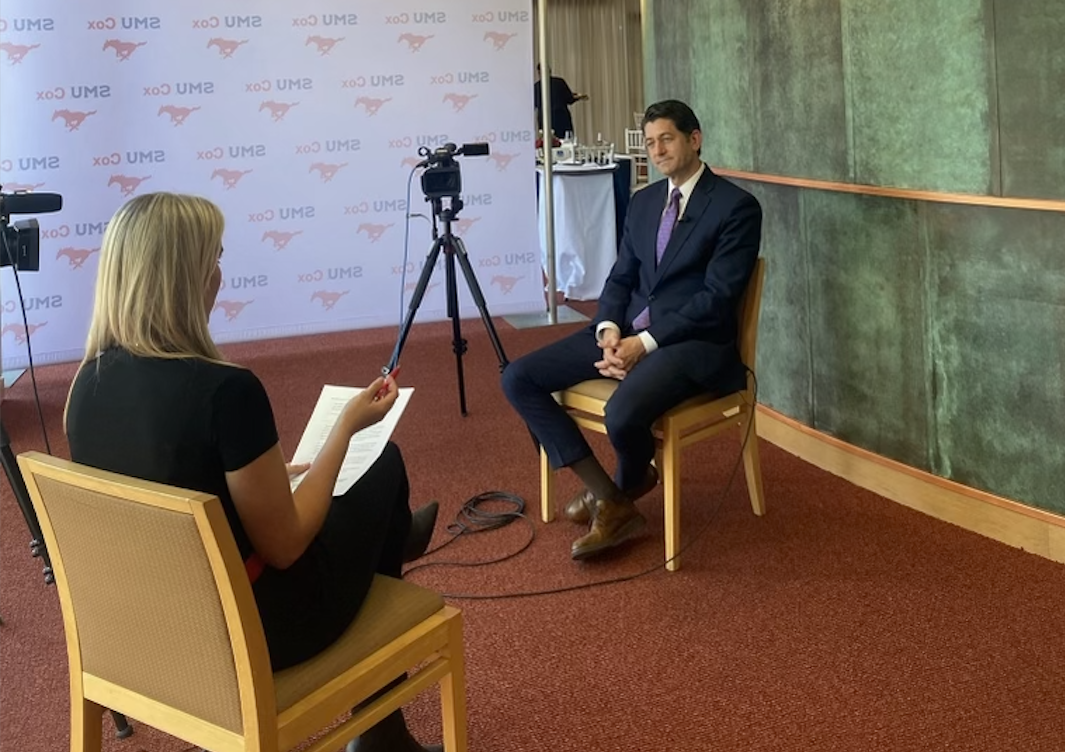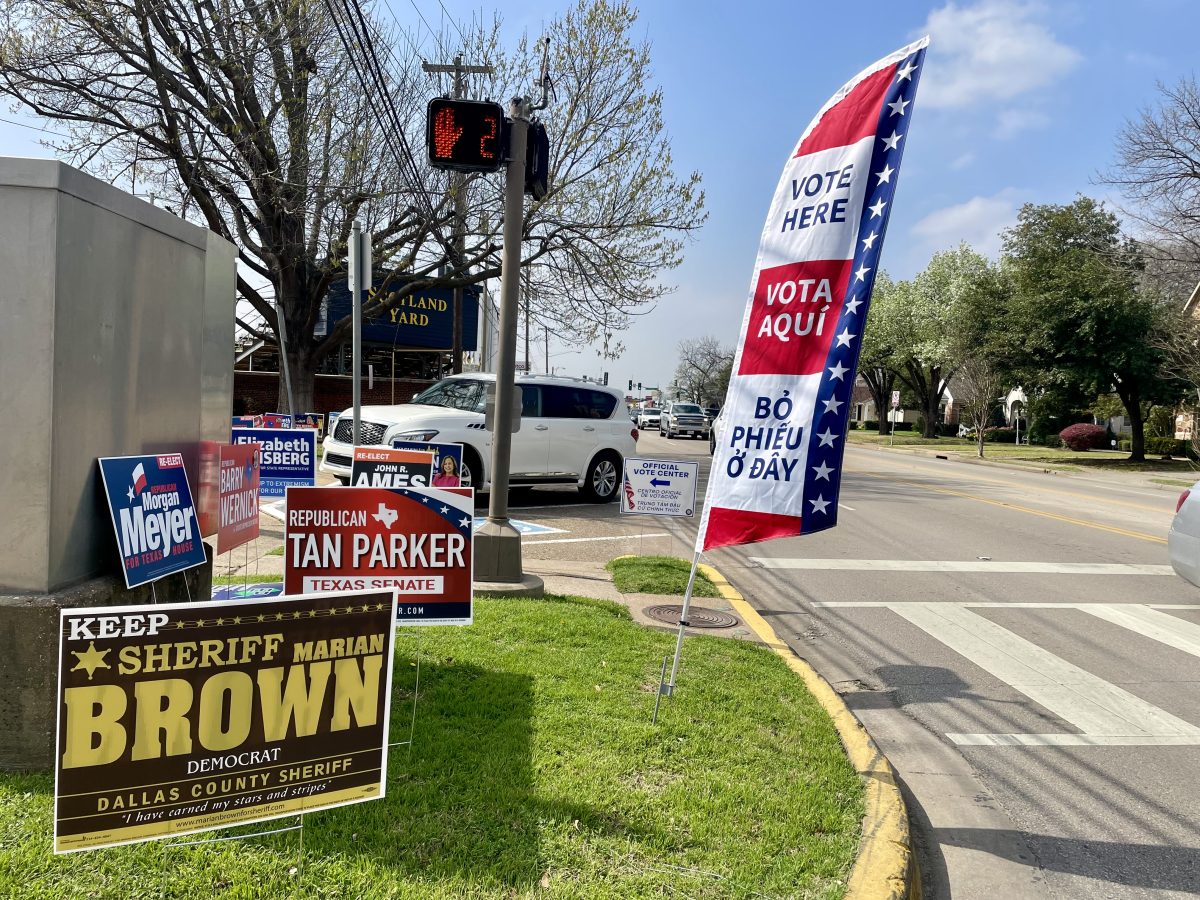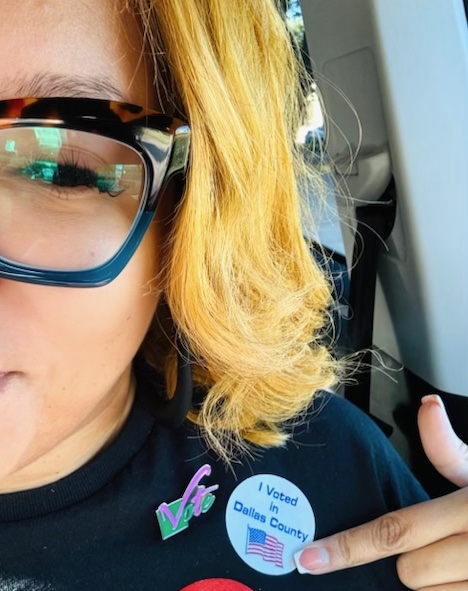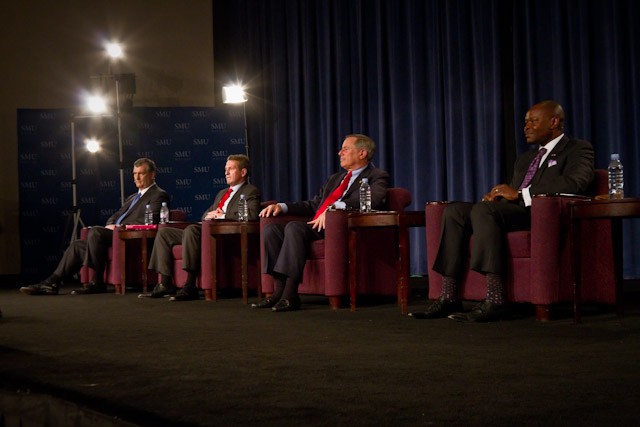
Mayoral candidates Mike Rawlings (from left) David Kunkle, Ron Natinsky and Edward Okpa listen to a member of the panel during Tuesday evening’s mayoral debate, hosted by The Daily Campus and KTVT. (SPENCER EGGERS/The Daily Campus)
The four candidates running for Dallas mayor discussed some of the city’s leading issues while seated on the stage of the Hughes-Trigg Theater Tuesday evening.
KTVT’s Doug Dunbar, the evening’s moderator, stood to the right of the stage where the four candidates sat in the order in which they will appear on the ballot: Mike Rawlings, David Kunkle, Ron Natinsky and Edward Okpa.
While rain flooded over campus just before the Campus Debate began, attendees managed to nearly halfway fill the theater’s seating.
Candidates were not offered to deliver an opening statement, as Dunbar said, “We want to get right to the heart of the matter.”
Questions were primarily asked by a panel of journalists that included Steve Pickett (KTVT), Scott Braddock (KTVT), Gromer Jeffers (The Dallas Morning News) and Jessica Huseman (The Daily Campus).
Picket started the debate by stating that all candidates have said they would not raise taxes to solve the problems in the city’s budget. They were then asked how else they would solve these problems.
Rawlings said he would not cut anything dealing with crime prevention or development, but that “everything else is on the table.” Kunkle insisted that the city council start addressing the year’s budget earlier than they currently do. Natinsky believes we can balance the budget without cutting anything and that the next year’s budget is “not as near as difficult as the last couple we’ve been through.” Okpa said we should “take a critical view of the structural challenges that are in the our budget.”
Education was a topic that came up in responses to various questions, including when Huseman asked the candidates what the most pressing need is in South Dallas to solve the problem of citizens traveling to North Dallas to spend their money.
Rawlings’ response was that “it’s all about education,” and that more people will live in South Dallas when there are better schools. This, according to Rawlings, would then lead to better housing and a stronger economy. Natinksy would like to bring more shopping directly to South Dallas and stop the fact that citizens are “leaving their tax dollars in the suburbs.” Okpa insisted that issues such as appearance in the area should be addressed, while Kunkle hopes to bridge the economic divide from the south sector.
Braddock asked the candidates how to address the Dallas Independent School District’s $100 million deficit and how a mayor should get more city input.
Kunkle wants to “continue to facilitate and help grow neighborhood after-school programs,” stating that they are still lacking commitment from the business community.
Natinksy, however, mentioned that the current programs in use and its plans are on the right track. In order to continue these kinds of initiatives, “we’ve got to get the entire community engaged.”
If he becomes mayor, Okpa plans to speak to parents of children.
“If I show you the school I went to in Nigeria, I think DISD’s a heaven,” he said.
However, he does believe parents are the children’s greatest influences and a key to fixing some issues in the district.
Rawlings believes it’s the mayor’s job to help the school district.
“We are an urban state now, and we must act that way with education,” he said, stating that the district should make an effort to become more transparent.
The debate, hosted by The Daily Campus and KTVT, lasted one hour, with questions ranging from DISD to the Trinity River Project.
Questions were also submitted by the public through social media, and email.
Dunbar presented a question submitted by SMU junior Harvey Luna on how each candidate would attempt to make Dallas “a more gay-friendly city.”
All candidates emphasized that respect should be shown to all groups of people.
Kunkle believes that the City of Dallas has been “very accommodating and a good place” for the LGBT community. Okpa said resistance toward all groups needs to cease; he mentioned how he himself still experiences a similar resistance because of the color of his skin.
Natinsky believes that efforts should be pursued in reaching out to involve those of the gay committee in making the city’s decisions—already, there are three open gays in Dallas City Council.
Rawlings believes that “for too long, we’ve been divisive,” and that he plans to “make sure that everybody has a place on the table.”
The debate ended with closing statements from the candidates, each spending two minutes on why they should be elected to the audience members before them.
Freshman Tracy Olson, business management and political science double major, is not eligible to vote in Dallas but was interested in the debate.
“I wanted to learn more of the issues,” she said, “but I was one of the few [of her friends] to come.”
Debate attendee and sophomore Shannon Davey, an art major and member of College Republicans, is able to vote in Dallas.
“I thought it was interesting learning their opinions,” she said. “It was interesting that they all took different stances.”
When asked whom she would vote for in the upcoming election, she replied, “the republican.”



